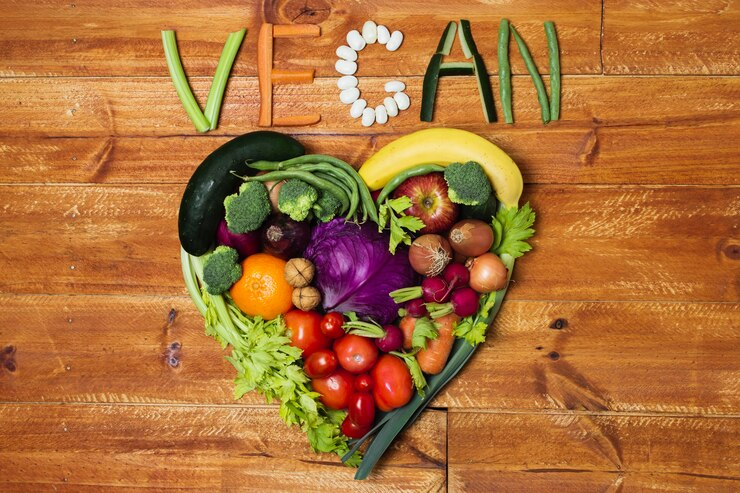Six healthy benefits of eating vegan diet
In an era where health consciousness is on the rise, many
individuals are exploring alternative dietary lifestyles to enhance their
overall well-being. One such lifestyle gaining popularity is the vegan diet, inclusion
of vegan plant based supplements like Fitspire keto fit, characterized by the
complete avoidance of animal products. Beyond its ethical and environmental
considerations, a well-balanced vegan diet has been associated with a myriad of
health benefits that extend far beyond just nourishing the body. In this blog
post, we delve into six transformative advantages that a vegan diet can offer
for your health.
1. Heart Health: Nourishing Your Cardiovascular System
The link between diet and heart health is well-established,
and a vegan diet shines in promoting cardiovascular well-being. By eliminating
saturated fats and cholesterol-rich animal products, individuals adhering to a
vegan lifestyle often experience lower levels of blood cholesterol. This
reduction in cholesterol is a key factor in preventing atherosclerosis, the
build-up of plaque in the arteries, which can lead to heart disease and stroke.
Moreover, plant-based diets tend to be rich in antioxidants and
anti-inflammatory compounds found in fruits, vegetables, and whole grains,
contributing to a healthier heart.
2. Weight Management: Crafting a Leaner You
Struggling with weight management? A vegan diet may be the
key to achieving and maintaining a healthy weight. With an emphasis on whole,
nutrient-dense foods such as fruits, vegetables, legumes, and whole grains, a
vegan diet naturally promotes lower calorie intake and higher fiber
consumption. Fiber, often lacking in many Western diets, plays a pivotal role
in promoting satiety, regulating blood sugar levels, and supporting a healthy
metabolism. These factors collectively contribute to effective weight
management and can be a powerful tool for those seeking to shed excess pounds.
3. Blood Sugar Control: A Plant-Powered Defense Against
Diabetes
As the prevalence of type 2 diabetes continues to rise
globally, dietary choices play a crucial role in preventing and managing this
metabolic disorder. Research suggests that a vegan diet can improve insulin
sensitivity and blood sugar control, reducing the risk of developing type 2
diabetes. The nutrient-rich and low-glycemic nature of plant-based foods
contribute to more stable blood sugar levels, offering a natural approach to
diabetes prevention and management.
4. Cancer Prevention: Harnessing the Power of Plant-Based
Antioxidants
There is a correlation between a lower risk of some cancers
and plant-based diets. Fruits, vegetables, and legumes are rich sources of
antioxidants and phytochemicals, which have been shown to have cancer-fighting
properties. Additionally, the exclusion of processed and red meats, both
classified as potential carcinogens, from a vegan diet further reduces the risk
of colorectal cancer. By embracing a plant-powered plate, individuals can
proactively contribute to their overall cancer prevention strategy.
5. Improved Digestive Health: Embracing Fiber for Gut
Wellness
Digestive health is a cornerstone of overall well-being, and
a vegan diet excels in promoting a healthy gut. Loaded with dietary fiber from
plant-based sources, such as whole grains, fruits, and vegetables, this diet
supports regular bowel movements and prevents constipation. Fiber also acts as
a prebiotic, nourishing the beneficial bacteria in the gut, leading to a
balanced and thriving microbiome. A well-functioning digestive system is not
only essential for nutrient absorption but is also linked to immune system
health and mental well-being.
6. Lower Blood Pressure: Potassium-Rich Plant Power
Hypertension, or high blood pressure, is a significant risk
factor for cardiovascular disease. The potassium-sodium balance plays a crucial
role in regulating blood pressure, and plant-based diets excel in providing an
abundance of potassium. Fruits and vegetables, staples of a vegan diet, are
rich sources of potassium, while the absence of high-sodium processed meats
further contributes to blood pressure regulation. By adopting a vegan
lifestyle, individuals may experience lower blood pressure levels, reducing the
risk of heart-related complications.
Nurturing Your Vegan Journey: A Balanced Approach
While the benefits of a vegan diet are abundant, it's
essential to approach this lifestyle with careful consideration and planning.
Ensuring adequate intake of key nutrients such as vitamin B12, iron, calcium,
and omega-3 fatty acids is crucial. Consultation with a healthcare professional
or a registered dietitian can provide personalized guidance to tailor a vegan
diet that meets individual nutritional needs.
‘Should you go vegan?’
A vegan diet may or may not be suitable for you, depending
on your particular genetic profile and personal circumstances. Most of us can
get all the nutrients we need if we plan ahead and know what constitutes a
healthy, balanced vegan diet. Many health advantages can be obtained from a well-planned
vegan diet, but be sure to include essential nutrients like calcium, iron,
zinc, and long-chain omega-3 fatty acids, as well as the vitamins B12 and D.
When you are planning to go on a total vegan diet, there is
chance you run a higher risk of not getting enough important nutrients especially
if you don't properly plan your diet or if your genetic makeup makes it
difficult for you to absorb certain nutrients.
In conclusion, a vegan diet is not merely a dietary choice;
it is a holistic approach to wellness. From nurturing heart health to
supporting weight management, blood sugar control, cancer prevention, digestive
health, and lower blood pressure, the advantages of a well-balanced vegan diet
are vast. By making mindful choices and embracing the bountiful offerings of
plant-based foods, individuals can unlock a path to enhanced health, vitality,
and longevity. So, embark on your vegan journey with knowledge, intention, and
a commitment to nourishing both yourself and the planet.


Comments
Post a Comment